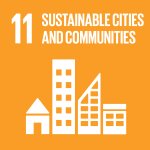
Photo:
The Global Basic Observing Network (GBON) is an international agreement that responds to the most essential data requirements of global weather and climate prediction models that are not met by satellite systems. Based on a global optimal design, GBON sets clear requirements to countries for collecting and internationally sharing surface-based observations of the most essential weather and climate variables, that is, atmospheric pressure, temperature, humidity, wind speed, precipitation, and snow depth.
Tanzania's Investment Funding Request, through the Systematic Observations Financing Facility (SOFF), endeavours to bolster Tanzania's meteorological infrastructure to align with the GBON standards and advance weather forecasting capabilities.
With a total budget of US$13,926,170 (with $9,026,278 provided by the SOFF and an additional $ 4,899,892 contributed in-kind by the Tanzania Meteorological Authority), the project (July 2024 to December 2027) aims to establish nine new surface stations, upgrade 18 existing ones, and procure and install four Upper Air stations, with TMA funding one and SOFF covering the remaining three. Upgrades also encompass converting the existing Julius Nyerere International Airport station in Dar Es Salaam to meet GBON standards.
Furthermore, the project encompasses comprehensive Operations and Maintenance (O&M) for all 27 surface stations and 5 Upper Air stations, ensuring steady operations, data integrity, and swift response to downtimes. There is also a focus on ICT upgrades to facilitate reliable data exchange and storage, alongside efforts in capacity building and human resource development to enhance data exchange efficiency across GBON stations.
In synergy with existing government-led initiatives, the project integrates with national meteorological infrastructure modernisation efforts, human capacity development, and policy frameworks addressing climate change response. Its global collaboration extends to contributing to weather forecasting models, improving forecast accuracy, and participating in international climate resilience initiatives like the Climate Investment Funds (CIF) NPC program and UNDP'S CIRDA program.
By aligning with national climate change strategies and global early warning initiatives, the project will help strengthen Tanzania's meteorological and supports its broader climate resilience goals and international cooperation endeavours.
- National
- Regional
- Global
- National Governments
- United Nations Development Programme (UNDP)
- Tanzania Meteorological Authority
- United Nations Development Programme (UNDP)
- Systematic Observations Financing Facility (SOFF)
- Image

- Image

Benjamin Larroquette, Global Advisor Early Warning Systems and Regional Technical Specialist, UNDP benjamin.larroquette@undp.org

